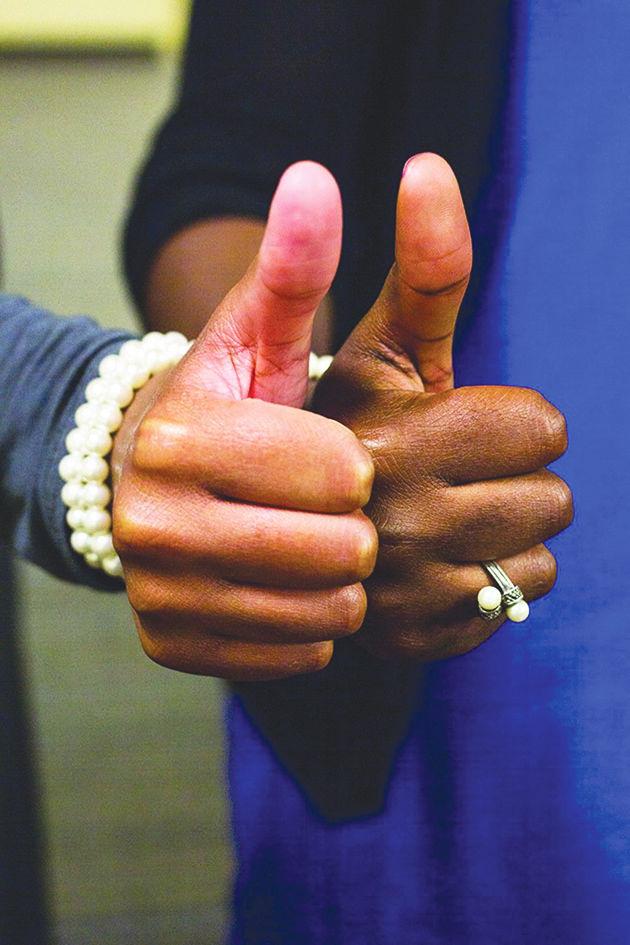One week into Black History Month, campus organizations have begun to remember and celebrate the impactful black leaders who’ve shaped black history across the globe.
The MSC Carter G. Woodson Black Awareness Committee, or WBAC, will host several events this month to educate A&M students about the rich history of impactful black leaders.
Jalyn Golden, wildlife sciences and entomology senior and former chair of MSC WBAC, said WBAC currently has two major programs planned for Black History Month. The first is a showing of the film “Chico and Rita,” a Spanish animated film, at 7 p.m. Saturday in Rudder Theatre. The showing is a collaboration between MSC WBAC, MSC CAMAC — a Latin programming committee — and MSC Aggie Cinema. After the showing, there will be a panel discussion on the Afro-Latino community culture and the film featuring four faculty members from the A&M Liberal Arts Department.
“Our committees hope to take the Texas A&M and Bryan-College Station area on a journey that educates on a part of the African diaspora that is often underrepresented during Black History Month,” Golden said. “In addition to creating a dialogue to merge the gap between the African and Latin culture that makes up the Afro-Latino community we hope to dispel some misconceptions of the Afro-Latino community and create fun, educational and welcoming experience for all to enjoy.”
The second event planned is the “African Kings and Queens Ballet” scheduled for 7 p.m. Feb. 13 in Rudder Auditorium, hosted by WBAC and the Department of Performance Studies.
“The ballet performance will be an original piece featuring the stories of Hannibal Barca, King Mansa Musa I, Queen Mother Nana Yaa Asantewaa and Queen Nzinga,” Golden said. “We hope to represent African civilizations, empires, and royalty through visual and performing arts. This ballet can help aid in diversity on campus through educational programming on the unique culture, history, and heritage of the African diaspora.”
Golden said the ballet also serves as a way to display activism through performing arts.
“The ballet will be performed by Urban Souls Dance Company (USDC) [whose] mission is to bridge the gap between life and art by promoting the importance of creativity,” Golden said. “The dancers of Urban Souls provide not just a dance performance, but also an experience that will inspire, teach and challenge audiences.”
Amy Diawara, public health junior, is the Black History Month director for WBAC this year. Diawara said, as director, she’s gotten to lead the preparations for the month’s events along with her co-workers.
“Along the way it’s just inclusion of the black culture and its various aspects being Muslim [and Black], being Afro-Latino,” Diawara said. “It’s not just one dimensional — that’s the biggest piece I have taken away.”
With the events WBAC will host, all campus organizations celebrating black rights and culture will come together Feb. 15 for the Umoja Festival, an annual African American culture and history festival.
“We are coming together because together we stand, divided we fall,” Diawara said. “We thought it would be really cool if we all came together for this festival.”
Lidell Perry, MSC WBAC adviser, said she just started working with WBAC last August and she feels this year it’s been very important to educate the campus community in what blackness means.
“Sometimes when we talk about Black History Month, we only focus about African American black history and the experience of black people in America since slavery,” Perry said. “And that’s something we want to address because black history starts way beyond slavery in America.”
Perry said the organization is aimed at highlighting where African roots come from and what that looks like across the diaspora.
“The African King and Queens Ballet on the [Feb.] 13 highlights some of the kings and queens that built these dynasties were a lot of African Americans, African Latinos, African Cubans find our roots in and some of our culture in,” Perry said. “Helping the community and the campus understand blackness isn’t just because you are from Africa, but because during the slave trade many persons taken from Africa weren’t just taken to America. They were taken to other parts of the world, so the African roots are there and the mixing and coming together of those people produced a different kind of black individual.”
WBAC commences Black History Month celebration
February 7, 2017
Photo by Provided
WABC is hosting several events to celebrate Black History Month.
Donate to The Battalion
Your donation will support the student journalists of Texas A&M University - College Station. Your contribution will allow us to purchase equipment and cover our annual website hosting costs.





















